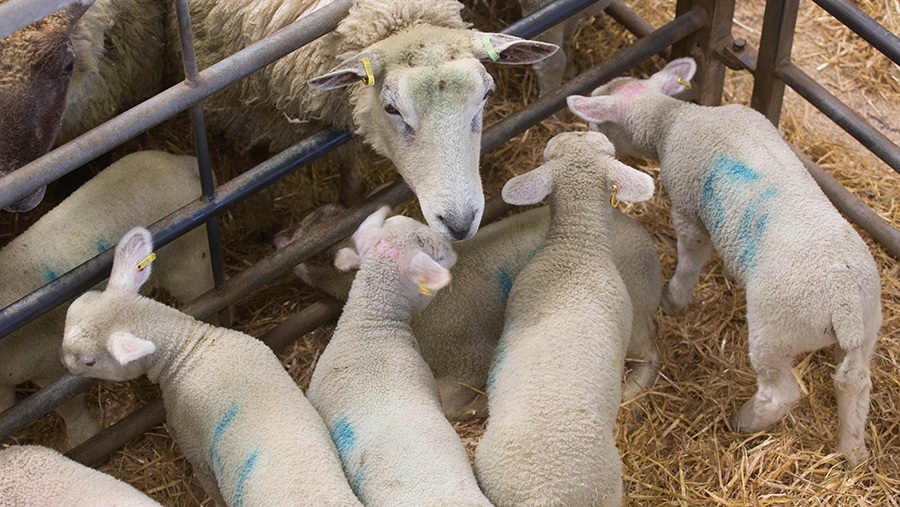Coronavirus: Marts suspend breeding stock sales
 © Tim Scrivener
© Tim Scrivener
Sales of breeding stock at auction marts have been suspended with immediate effect in England and Wales due to the coronavirus pandemic.
The sale of prime stock, cull animals and store stock is still permitted. But there will be no sales of any breeding stock for at least three weeks.
See also: Coronavirus: Traders only at livestock marts, say auctioneers
This category of sale includes – but is not limited to – dairy and beef breeding cattle, breeding sheep, ewes with lambs at foot and breeding pigs.
The Livestock Auctioneers’ Association (LAA) announced the measure amid additional security standards and restrictions in a bid to ensure continued safe trade within its marts.
It said the government had agreed that livestock markets played a crucial role in facilitating the efficient supply of livestock into the food chain.
Thanking vendors and buyers for their support, LAA secretary Chris Dodds said: “Our priorities are to protect public health while still being able to supply the food chain.”
Compulsory registration
Ramping up previous advisory recommendations, it was now compulsory for all purchasers to register with the market, and only “known” buyers will be given access.
In an effort to reduce the number of people at marts, where possible buyers have been asked to “double-up”, with one person buying for multiple purchasers.
All potential gathering points such as refreshment cafés and mobile units will be closed, and social distancing will be enforced.
Markets will keep a register of everyone attending sales, and marts will not permit any more people around the ring than the minimum 2m gap will allow.
Buyers will be asked to enter the sales office in a manner that does not result in too many entering at any one time. Buyers will be asked to sanitise on entry to the market, and exit.
‘Drop and go’
Markets are also implementing a “drop and go” policy for all vendors, to prevent any sellers from entering the market. Vendors must deliver animals to loading docks, and remain in their vehicles while market staff unload them and take the animals to their pens.
Sale documentation must be collected by the market staff from the vendors’ vehicle, and vendors will not be permitted to the market offices or pennage area for any reason.
Once unloaded, the vendors’ vehicle must leave the mart site immediately, said Mr Dodds. “We appreciate these new measures create challenges, but it is important we work together to help deliver an efficient supply of livestock to the food chain, while protecting everyone from the virus.”
Coronavirus guidelines for farmers and livestock marts
Buyers
• Markets will enforce buyer restrictions to allow for social distancing, not allowing more people at the ringside than the 2m gap allows.
• Markets strongly advise purchasers to “double up”, with one person to buy for multiple clients.
• All purchasers must register with the market and only “known” purchasers will be given access to the market.
• Markets will ensure that the highest hygiene measures are in place.
• All potential “gathering” points will be prevented, and all cafés, mobile units etc, closed.
• Markets will keep a register of those that attend their sales – contact name, address and telephone number.
• At the conclusion of the sale, buyers will be asked to enter the sales office in a way that does not result in too many entering at any one time.
• Buyers will be asked to sanitise on entry to the market and again on exiting.
Vendors
• Markets will implement a “drop and go” policy for vendors to prevent any sellers from entering the market.
• Vendors must remain in their vehicles when they arrive at the market.
• Market staff will unload vehicles at the loading dock, and the vendor’s vehicle must then leave the market site immediately.
• The sale documentation will be collected by the market staff from the vendor’s vehicle when they arrive at the unloading docks.
• Vendors must not take the paperwork to the market office, or enter the market pennage area for any reason.
